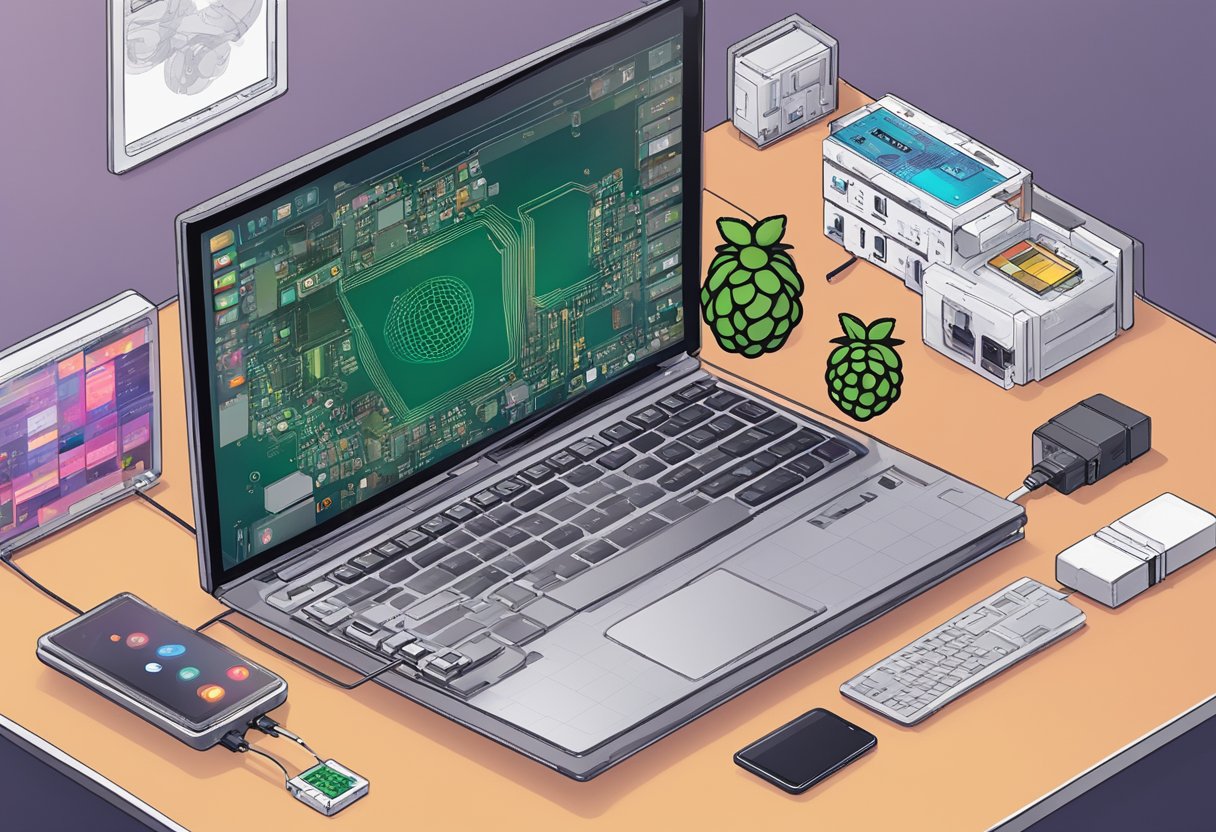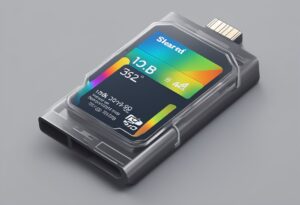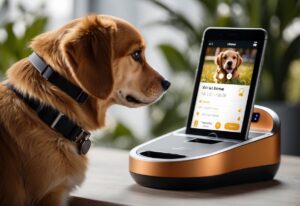The Raspberry Pi is often celebrated for its versatility as a low-cost, credit card-sized computer, but its role extends far beyond traditional computing tasks. As an Internet of Things (IoT) device, the Raspberry Pi exhibits a unique potential for hobbyists, educators, and industry professionals alike, serving as a gateway to the vast and rapidly expanding world of connected devices.
Its ability to run various operating systems and connect to a myriad of peripherals enables it to collect data, process it, and communicate with other devices or the cloud, making it an invaluable tool in developing smart, connected solutions.
With its generous set of General Purpose Input/Output (GPIO) pins, the Raspberry Pi offers extensive connectivity options, effectively bridging the gap between the digital and physical worlds. This connectivity, paired with the Raspberry Pi’s affordability, invites a broad range of applications, from simple home automation to sophisticated industrial IoT systems.
The device’s capability to act as a standalone IoT device or as an edge device, where it processes data close to the source, allows for enhanced data processing efficiency and reduced latency, contributing to the optimization of complex IoT systems.
Key Takeaways
- The Raspberry Pi serves a dual function as a cost-effective computer and a versatile IoT device.
- Its array of GPIO pins enables direct interaction with a wide range of sensors and actuators.
- As both a standalone and edge IoT device, the Raspberry Pi facilitates efficient data processing and connectivity.
Understanding the Raspberry Pi as an IoT Device
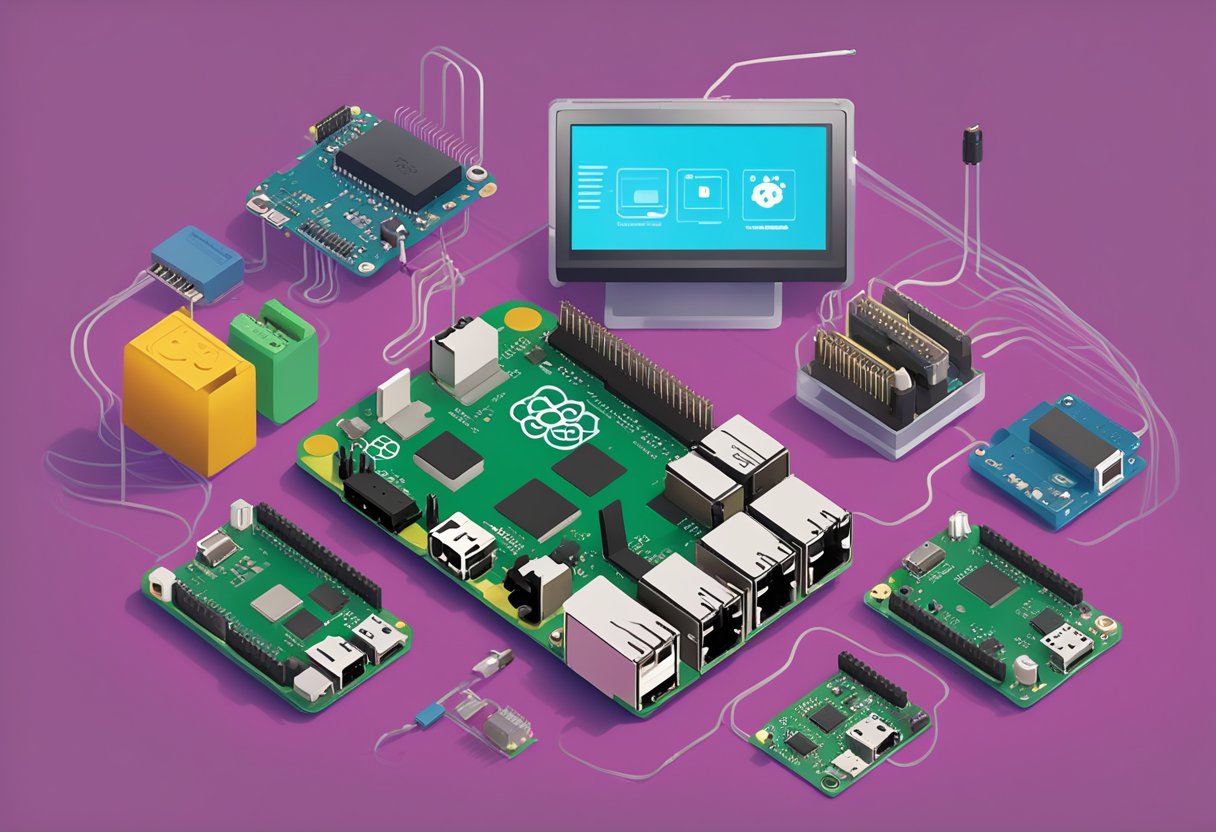
The Raspberry Pi stands out in the Internet of Things (IoT) ecosystem due to its versatility and affordability, functioning effectively as a compact yet powerful single-board computer. From enabling sensor integration to supporting various communication protocols, the Raspberry Pi is an integral part of numerous IoT applications.
Hardware Specifications
The Raspberry Pi comes equipped with a capable CPU and varying amounts of RAM depending on the model, making performance scalable for different IoT needs. With multiple GPIO pins, USB ports, and an Ethernet port, it allows extensive peripheral and network connectivity.
More recent models also include onboard Wi-Fi and Bluetooth support, enhancing wireless communication capabilities.
Software and Operating System
At the heart of its operation, the Raspberry Pi typically runs on Raspbian, a Linux-based operating system tailored for this platform. However, it also supports other operating systems, offering flexibility for IoT development.
The common programming languages used on the Raspberry Pi for IoT projects include Python, C++, and Java, facilitated by a robust set of libraries like the GPIO Python Library.
Connectivity and Networking
For an IoT device, connectivity is crucial. The Raspberry Pi offers not just Wi-Fi Connectivity and Ethernet, but also Bluetooth, allowing it to join a network and communicate with other devices and services.
Protocols such as MQTT enable the Raspberry Pi to easily integrate into existing IoT systems, taking advantage of its network connectivity functions.
Expansion and Community
A remarkable aspect of the Raspberry Pi is the array of Hats and add-on boards available for expansion, thanks to its GPIO pins.
The strong community support and open-source nature of the Raspberry Pi resources empower users to share, learn, and build upon each other’s work.
This strengthens its role within the IoT ecosystem, as both novices and experts can contribute to the ever-growing pool of knowledge and innovation.
Applications and Use Cases
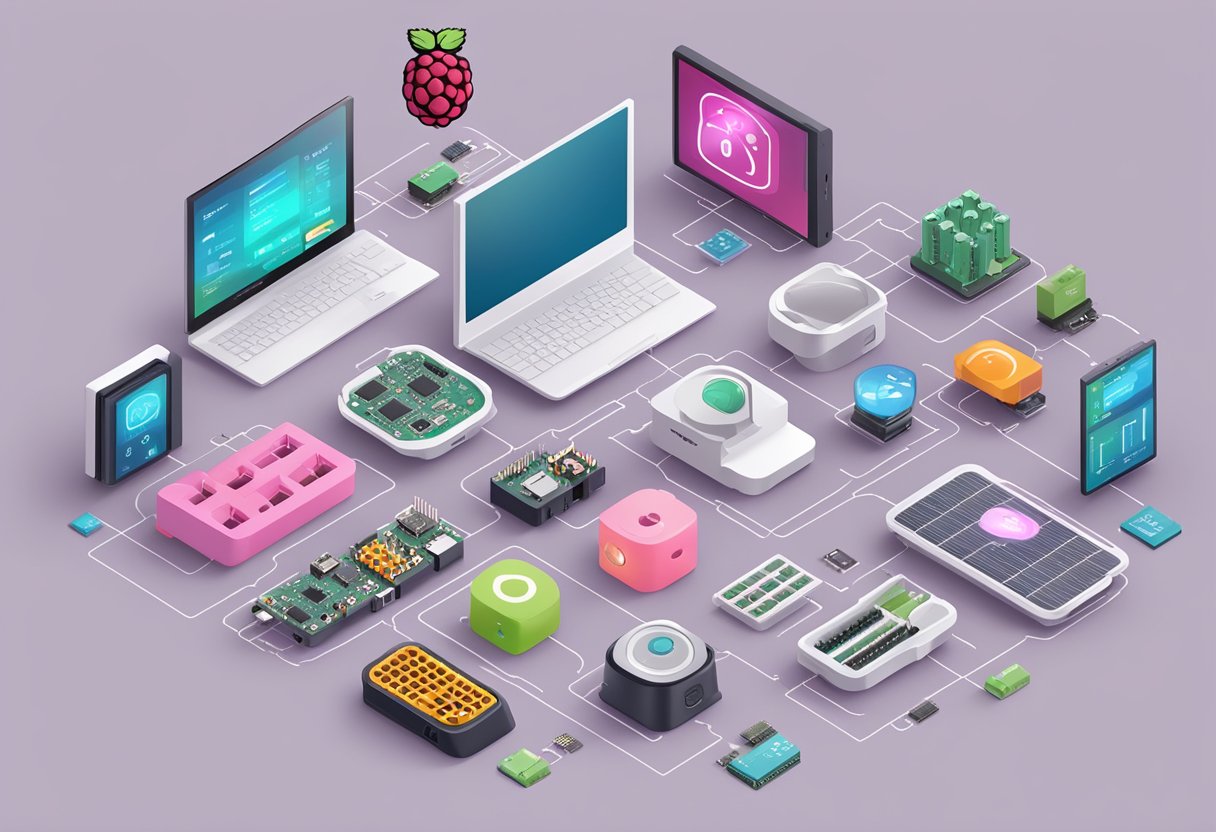
The versatility of the Raspberry Pi as an IoT device is evident in its wide range of applications, from simple home automation to complex industrial solutions.
Smart Home and Automation
In the realm of home automation, Raspberry Pi serves as a cost-effective and powerful brain for smart home systems.
It can control lighting, security, and temperature, often utilizing environmental monitoring sensors. The device can also integrate with existing home systems to enhance efficiency and provide dynamic automation solutions.
Industrial and Enterprise Solutions
Industrially, the Raspberry Pi empowers remote monitoring and industrial automation systems, bolstering efficiency and enabling improved decision-making through real-time data analysis.
It’s particularly valuable for edge computing applications where processing power near the source of data collection reduces latency.
Educational and DIY Projects
For educational purposes and DIY projects, the Raspberry Pi introduces learners and makers to the fundamentals of computer science education. It’s commonly used with breadboards and jumper wires to teach robotics and control systems.
Entrepreneurs and hobbyists alike utilize it for prototyping and crafting innovative smart solutions tailored to real-world challenges.

